In the heart of rural Jharkhand, where farming is both a livelihood and a legacy, women have long been the silent workforce behind agricultural practices. Yet, for generations, they remained confined by traditional methods, struggling to make ends meet. It was into this landscape of challenges that Transform Rural India (TRI) stepped, catalyzing a remarkable transformation that reshaped not just farming practices but the very lives of women farmers in this region.
TheCSRUniverse’s earlier feature on TRI provided a deep dive into their initiatives, shedding light on their work in empowering rural communities. Today, we bring you firsthand accounts of this transformation through the voices of women like Yamuna Kumari, Priyanka Kumari, Sunita Samad, and Nikki Kumari, whose journeys exemplify TRI’s impact.
Yamuna Kumari’s Journey from Struggle to Success
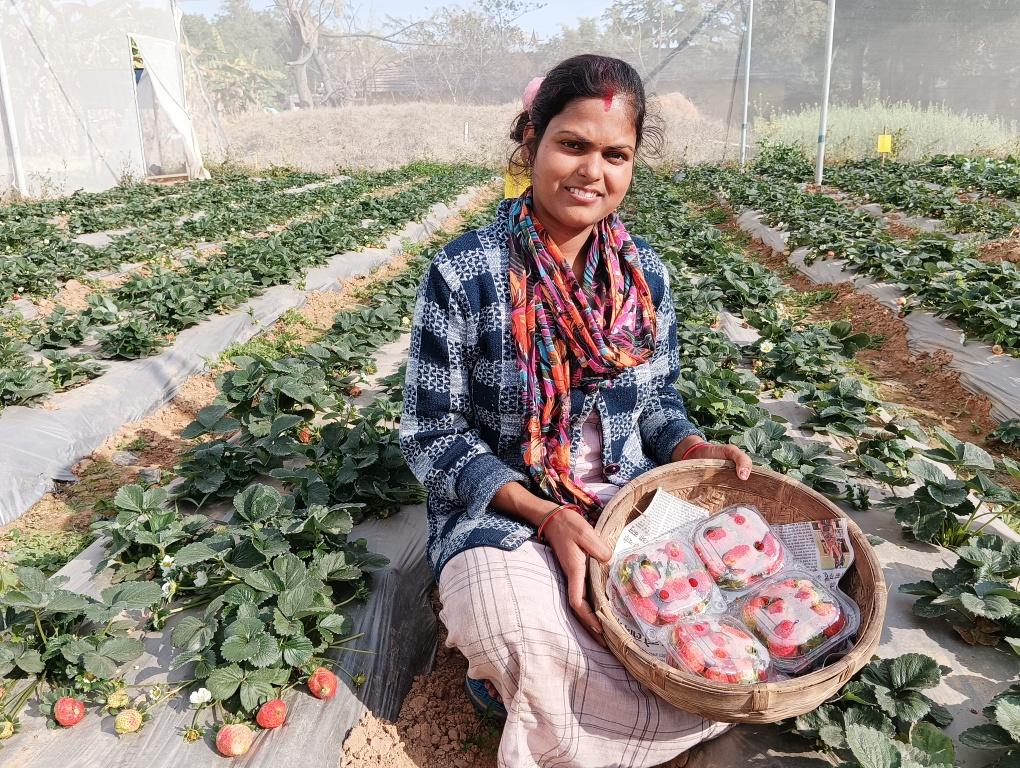 Yamuna Kumari, from the small village of Bero, Jharkhand, faced the challenges that many rural farmers grappled with—limited resources, poor crop yields, and an absence of modern farming knowledge. Before receiving TRI’s support, her life as a farmer was marked by hard work with minimal returns. The challenges were numerous: traditional farming methods, poor access to quality seeds, fertilizers, and the struggle to sell produce at reasonable prices in local markets.
Yamuna Kumari, from the small village of Bero, Jharkhand, faced the challenges that many rural farmers grappled with—limited resources, poor crop yields, and an absence of modern farming knowledge. Before receiving TRI’s support, her life as a farmer was marked by hard work with minimal returns. The challenges were numerous: traditional farming methods, poor access to quality seeds, fertilizers, and the struggle to sell produce at reasonable prices in local markets.
However, TRI’s intervention opened a new chapter in her life. Yamuna was introduced to high-value agricultural practices like strawberry cultivation under protected environments and grafted crops like brinjal and tomatoes. The change was not only professional but personal. She became one of the first farmers in her village to cultivate strawberries using these new techniques, significantly increasing both the quality and quantity of her produce.
Reflecting on her transformation, Yamuna says, "Before, I never thought a woman like me could change her life through farming. Now, I not only support my family, but I also help other women find the strength to believe in their own potential."
TRI’s support didn’t stop there. It also equipped Yamuna with essential skills in crop planning, resource management, and the use of new farming technologies like mulching beds for strawberries. With the establishment of a Farmer Field School (FFS) at her farm, Yamuna became not just a beneficiary but a mentor, sharing her newly gained knowledge with other farmers in her community, particularly women.
This platform allowed her to empower others and further amplify the impact of TRI's training. Her income soared from INR 3.2 lakh to INR 11.8 lakh annually, allowing her to improve her family's standard of living and even purchase a scooter, granting her greater mobility and independence, and she became a symbol of success, especially for women in her village. Her success led to the empowerment of other women, and she proudly taught them how to adopt modern practices, proving that women can thrive in farming, a profession traditionally dominated by men.
To further emphasize the impact of TRI's support, Yamuna adds, "TRI’s support has made me feel much more empowered and independent. The financial stability from my increased income has allowed me to contribute significantly to my family’s wellbeing and gain a sense of security and control. Being able to manage my own farm and make important decisions about crops and resources has given me confidence in my abilities."
Priyanka Kumari: From Traditional Farming to Modern Innovation
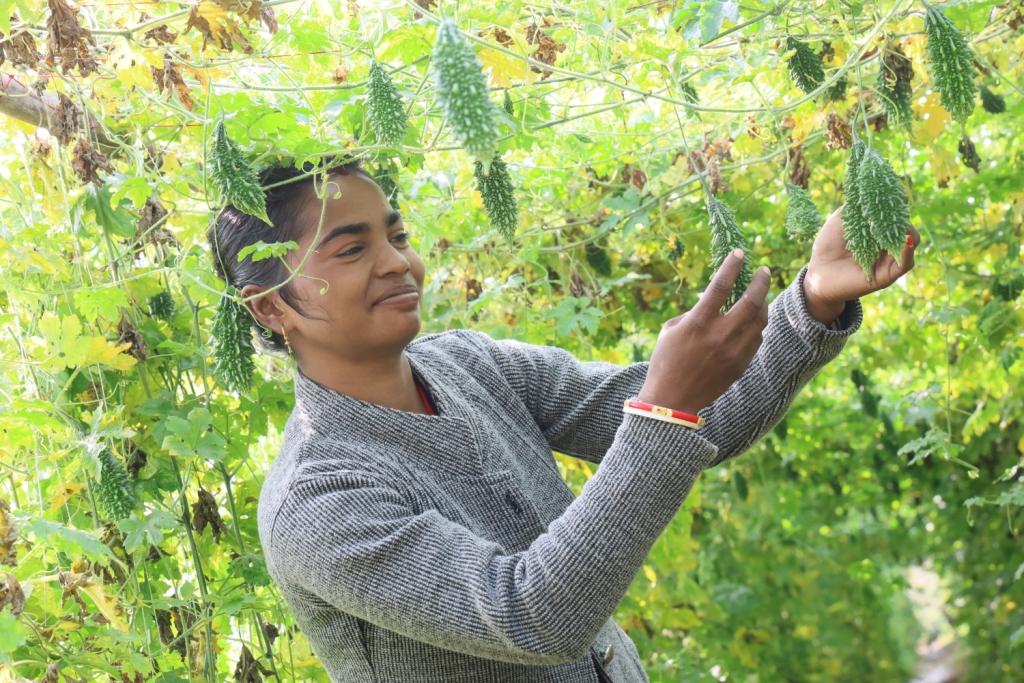 Priyanka Kumari, a farmer from Gola, Jharkhand, had always followed traditional farming methods on her family’s five-acre plot. Despite the hard work, the results were meager, and her family’s income was unstable. The challenges she faced mirrored those of many farmers—poor crop yields, limited access to quality seeds, and an inability to sell produce at fair prices.
Priyanka Kumari, a farmer from Gola, Jharkhand, had always followed traditional farming methods on her family’s five-acre plot. Despite the hard work, the results were meager, and her family’s income was unstable. The challenges she faced mirrored those of many farmers—poor crop yields, limited access to quality seeds, and an inability to sell produce at fair prices.
When Priyanka received support from TRI, her entire approach to farming transformed. TRI introduced her to modern farming practices and helped her set up a demonstration plot where she learned about Integrated Nutrient and Pest Management (INM & IPM), improving soil health naturally, water conservation through drip irrigation, and direct selling techniques, including grading and sorting her produce for better market prices. She also began growing off-season vegetables, diversifying her crops, and tapping into new markets.
Priyanka describes her previous struggles: "In my peaceful village of Gola, where farming has been the backbone of our families for generations, I was just another farmer, struggling to make ends meet. I have five acres of family land, and for years, I farmed using traditional methods, growing paddy, mustard, wheat, and vegetables. Despite all my hard work, the harvests barely met my family’s needs, and the income was never stable. We faced many challenges—poor crop yields, limited access to quality seeds and fertilizers, and the difficulty of selling our produce at good prices in the local market."
And how TRI changed things: "Everything changed when I received support from TRI. It was a turning point in my life. With TRI’s help, I learned new techniques and ways to overcome these challenges. They introduced me to modern farming practices, and I began to see tangible improvements in my farm’s productivity and my income."
With these new skills, Priyanka’s income skyrocketed, growing from INR 2.45 lakh to over INR 10 lakh annually. She became a “Mahila Kisan” (female farmer) leader, showcasing how women can thrive in agriculture, manage farms, and even run businesses, inspiring other women in her community to pursue their own ambitions. Priyanka’s journey has empowered her not only financially but also personally, as she now mentors other women, encouraging them to break free from traditional gender roles and embrace farming as a source of income and independence.
Sunita Samad: Breaking Barriers with Solar Irrigation
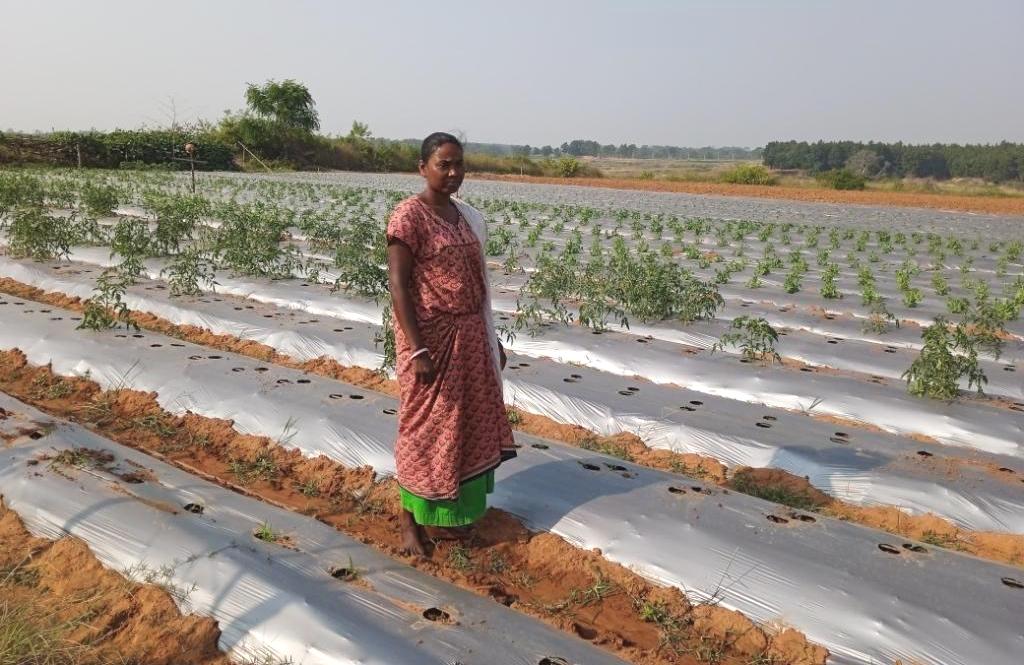 Sunita Samad from Khunti, Jharkhand, like many women in her village, had long relied on traditional farming techniques to support her family. However, due to water scarcity, she could only grow Kharif crops, and her farming prospects were limited. Sunita’s village was close to a river, but without an irrigation system, the water resources were untapped.
Sunita Samad from Khunti, Jharkhand, like many women in her village, had long relied on traditional farming techniques to support her family. However, due to water scarcity, she could only grow Kharif crops, and her farming prospects were limited. Sunita’s village was close to a river, but without an irrigation system, the water resources were untapped.
With the installation of a solar-powered irrigation system, Sunita’s life took a significant turn. The solar system allowed her to cultivate three crops annually instead of just two, expanding into vegetable farming. She learned how to grow crops like chili and peas using poly-mulching, which boosted her income, earning her ₹65,000 in just one Rabi season. "With the support of JSLPS (Jharkhand State Livelihoods Promotion Society) and TRI, we acquired the solar irrigation scheme, boosting our confidence and tripling our production," she explains.
Sunita’s newfound confidence in her farming abilities led her to become the secretary of her Village Organization (VO), where she focused on group earning systems and collaborating with other organizations. She became a leader in her community, advocating for the adoption of new technologies like mulching, trellising, and even strawberry cultivation. As a result, other families in her village also began to diversify their crops, growing high-quality coriander and green chilies, earning ₹4,000 to ₹5,000 monthly, and even cultivating watermelons due to the assured irrigation. This local economic boost contributed to a reduction in male migration post-lockdown.
Nikki Kumari: Embracing Modern Techniques for a Sustainable Future
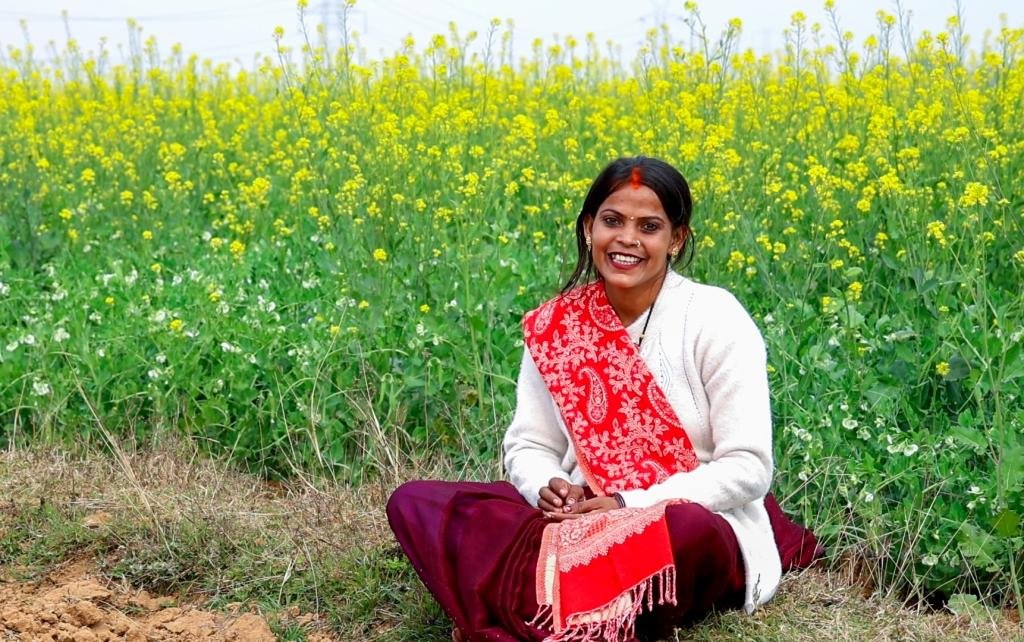 In Nagri, Jharkhand, Nikki Kumari faced similar challenges as the other women. Her family had been farming for generations, but like many of her neighbours, they struggled with poor crop yields, limited access to resources, and the unpredictable nature of local markets. Nikki's farm, spread across seven acres, produced a variety of crops, but the results were never enough to sustain the family in the long run.
In Nagri, Jharkhand, Nikki Kumari faced similar challenges as the other women. Her family had been farming for generations, but like many of her neighbours, they struggled with poor crop yields, limited access to resources, and the unpredictable nature of local markets. Nikki's farm, spread across seven acres, produced a variety of crops, but the results were never enough to sustain the family in the long run.
TRI’s intervention helped Nikki turn her situation around. She learned how to use high-quality seeds, adopt integrated nutrient and pest management (INM & IPM), and diversify her crops. Nikki’s farm began flourishing with a diverse range of crops, including 1.5 acres of grafted brinjal, 2 acres of green peas, 1.35 acres of French beans, and approximately 1 acre of green chilies. She also adopted drip irrigation, reducing water usage and input costs. The introduction of off-season and exotic vegetables further expanded her market opportunities, leading to greater income and stability. She developed a year-round cropping plan that allowed for continuous production, maximizing income and minimizing idle periods.
Nikki’s success story is one of sustainability and empowerment. She now directly sells her crops through better marketing channels, and her farm’s productivity has improved significantly. Her journey not only transformed her life but also inspired other women in her village to adopt modern farming techniques, resulting in a significant increase in her annual income, now reaching between Rs. 12 to 13 lakhs, with an annual investment of approximately Rs. 6 lakhs.
Reflecting on her growth, Nikki says, "The additional income has allowed me to send my children to private schools, giving them access to quality education that was previously beyond our reach. Moreover, our family no longer needs to migrate seasonally in search of work; we are now financially stable and self-sufficient. This stability has raised our standard of living, and we enjoy a more secure and comfortable lifestyle." She further adds, "Beyond our family, my success story has inspired many in the community, especially other women farmers. They see me as a role model and leader. I actively support fellow farmers by connecting them with market opportunities and organizing training sessions to share best practices."
A Shared Vision of Empowerment and Growth
The stories of Yamuna, Priyanka, Sunita, and Nikki illustrate the power of TRI’s support in transforming the lives of rural women farmers. Through access to modern farming techniques, quality resources, and mentorship, these women have overcome the challenges they once faced and created successful farming businesses. Their stories are not just about financial growth but also about personal empowerment, community leadership, and the breaking down of gender stereotypes.
TRI’s support has not only transformed individual lives but also empowered entire communities. By introducing innovative farming techniques, creating new market opportunities, and promoting water conservation, TRI has played a pivotal role in reshaping the future of agriculture in Jharkhand. These women, once limited by traditional practices, now stand as models of hope and empowerment for others in their communities, inspiring a new generation of farmers—especially women—to embrace modern farming practices and become leaders in their own right.
Through their hard work, resilience, and the support of organizations like TRI, these women have not only improved their lives but have also paved the way for a more inclusive and sustainable agricultural future in rural India.




 Yamuna Kumari, from the small village of Bero, Jharkhand, faced the challenges that many rural farmers grappled with—limited resources, poor crop yields, and an absence of modern farming knowledge. Before receiving TRI’s support, her life as a farmer was marked by hard work with minimal returns. The challenges were numerous: traditional farming methods, poor access to quality seeds, fertilizers, and the struggle to sell produce at reasonable prices in local markets.
Yamuna Kumari, from the small village of Bero, Jharkhand, faced the challenges that many rural farmers grappled with—limited resources, poor crop yields, and an absence of modern farming knowledge. Before receiving TRI’s support, her life as a farmer was marked by hard work with minimal returns. The challenges were numerous: traditional farming methods, poor access to quality seeds, fertilizers, and the struggle to sell produce at reasonable prices in local markets. Priyanka Kumari, a farmer from Gola, Jharkhand, had always followed traditional farming methods on her family’s five-acre plot. Despite the hard work, the results were meager, and her family’s income was unstable. The challenges she faced mirrored those of many farmers—poor crop yields, limited access to quality seeds, and an inability to sell produce at fair prices.
Priyanka Kumari, a farmer from Gola, Jharkhand, had always followed traditional farming methods on her family’s five-acre plot. Despite the hard work, the results were meager, and her family’s income was unstable. The challenges she faced mirrored those of many farmers—poor crop yields, limited access to quality seeds, and an inability to sell produce at fair prices. Sunita Samad from Khunti, Jharkhand, like many women in her village, had long relied on traditional farming techniques to support her family. However, due to water scarcity, she could only grow Kharif crops, and her farming prospects were limited. Sunita’s village was close to a river, but without an irrigation system, the water resources were untapped.
Sunita Samad from Khunti, Jharkhand, like many women in her village, had long relied on traditional farming techniques to support her family. However, due to water scarcity, she could only grow Kharif crops, and her farming prospects were limited. Sunita’s village was close to a river, but without an irrigation system, the water resources were untapped. In Nagri, Jharkhand, Nikki Kumari faced similar challenges as the other women. Her family had been farming for generations, but like many of her neighbours, they struggled with poor crop yields, limited access to resources, and the unpredictable nature of local markets. Nikki's farm, spread across seven acres, produced a variety of crops, but the results were never enough to sustain the family in the long run.
In Nagri, Jharkhand, Nikki Kumari faced similar challenges as the other women. Her family had been farming for generations, but like many of her neighbours, they struggled with poor crop yields, limited access to resources, and the unpredictable nature of local markets. Nikki's farm, spread across seven acres, produced a variety of crops, but the results were never enough to sustain the family in the long run.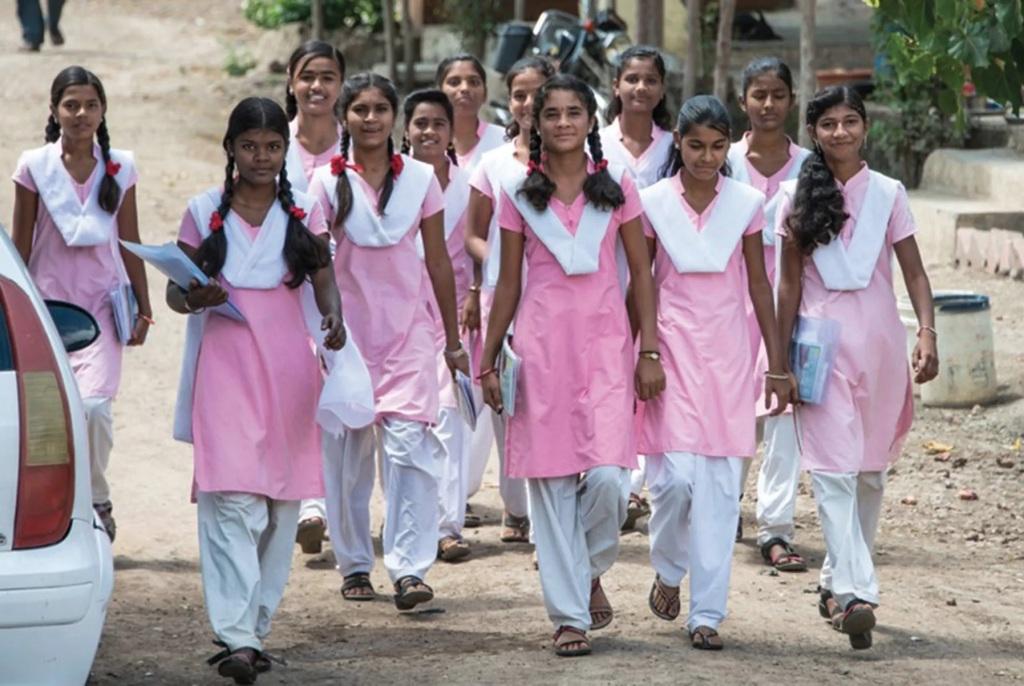


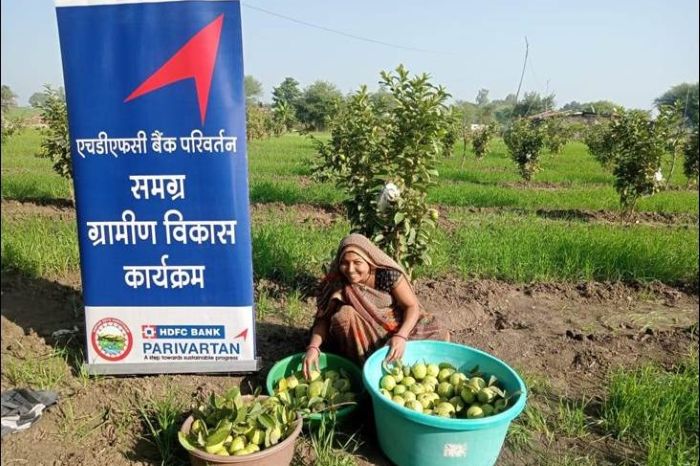
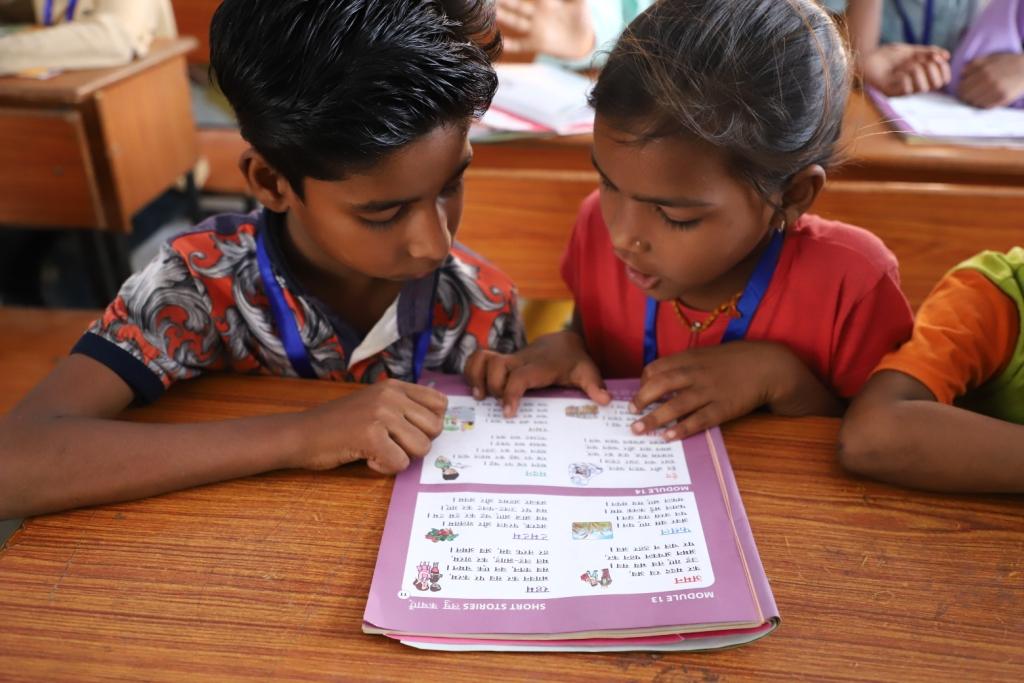
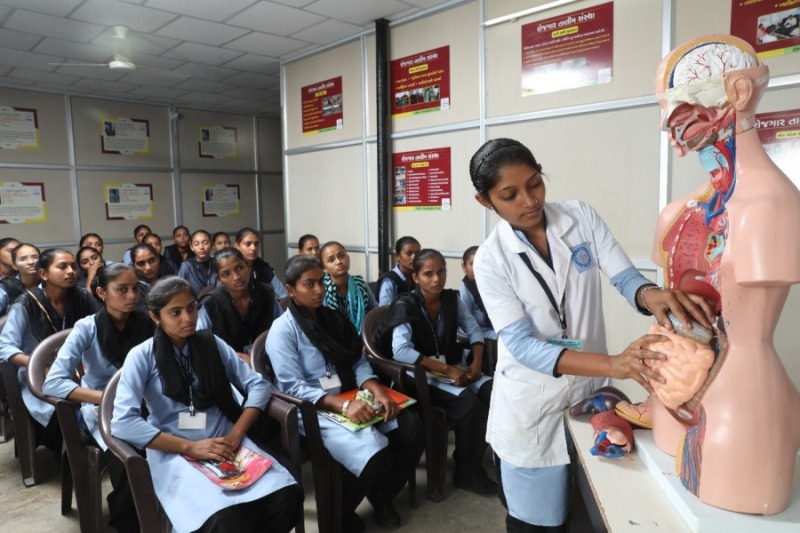

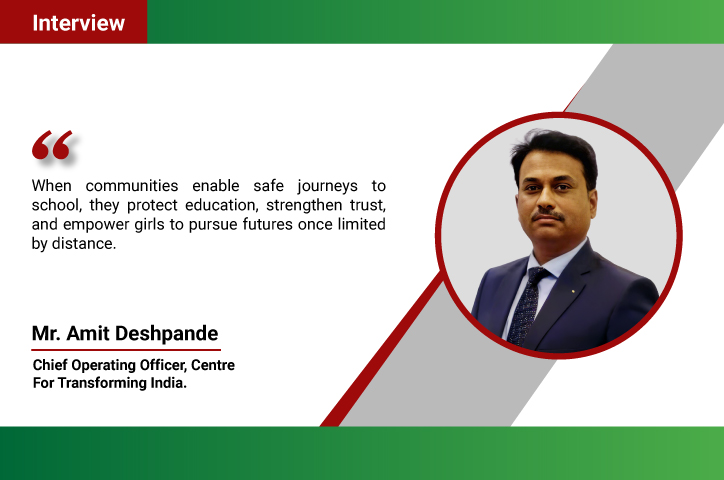






.jpg)



